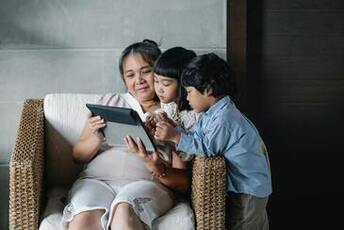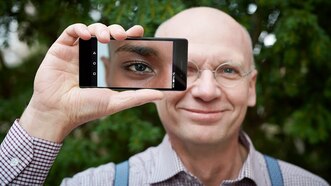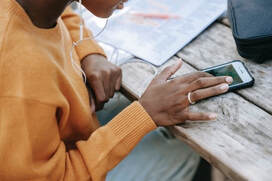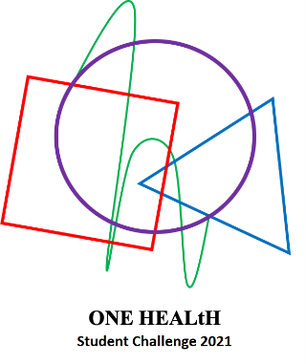 After 6 weeks of hard work by our student teams, the 2021 One HEALtH Challenge is almost at an end. We will be hosting the final event (held via Zoom) this Thursday, March 18th from 5:30 to 7:30 PM via zoom. After screening everyone's video pitches, each team will answer questions from our expert judges panel to help them decide on the winning team. The winners will receive $100 each and have their solution for promoting cross-generational connections featured on our website. We are so excited to share the solutions developed by this year's brilliant batch of interdisciplinary competitors. All are welcome! If you are interested in attending, please email us at chaimcentre@carleton.ca.
0 Comments
 Learn more about stress and mental health among students Learn more about stress and mental health among students By Candice Harris, Neuroscience and Mental Health Student At the beginning of 2020, I’d hit rock-bottom. I’d spent the previous year facing some of the biggest challenges of my life, and I finally caved under the pressure. Following an incident at the end of 2018, I was battling anxiety, panic attacks, depression, and delusions – all symptoms of PTSD that would land me at the hospital emergency twice. I’d developed a drug addiction as well as an eating disorder, and I was barely passing the few school courses I hadn’t withdrawn from. With my mental health at an all-time low, I knew I needed to seek help. This marked the beginning of my journey toward becoming a healthier, happier, and kinder human being. I threw my old mindset out the window and adopted a beginner’s mind: I started talking to friends and family, and I came clean to my doctors. I joined a program for cognitive behavioural therapy, borrowed books from the library on the neuroscience of mental health, and signed up for a meditation retreat. I met with an academic advisor and joined study groups for my courses. I started prepping healthy meals and I created a workout plan that included everything from yoga to circuit training. I began to journal about my emotions and about what I was most grateful for. Over the next few months, my mental health started to recover. I was at a point where I really wanted to help others and try to have a more positive impact on the world. The lockdown in March made this extremely difficult: I spent my extra time picking up litter around the community and educating myself on social causes, but I was itching to do more. My sister, knowing this, sent me a TikTok video which featured a young woman excitedly reciting the experience of her very first call from ‘Be My Eyes’.  Learn more about Be My Eyes Learn more about Be My Eyes Be My Eyes is a free app that one can download to become a virtual volunteer for people who are visually impaired. Currently, there are almost 260,000 people with visual impairments registered with the app, and nearly 4 million volunteers who have downloaded it as well. The app allows a blind or visually impaired person to reach out with a simple press of a button. This then sends a message to volunteers, alerting them that someone from Be My Eyes ‘is calling’. The first person to click the message alert will answer the call and be able to provide assistance, be it with reading names on mail envelopes or finding the page for a recipe. The beauty of the app is that it allows the volunteers to only pick up calls that occur at a time that is convenient for them, and with the large number of volunteers, there is no worry about a call going unanswered. I immediately downloaded the app and waited for my first call, which eventually happened a month or so later. There were a few calls before this, but I was never quick enough to answer – someone always beat me to it! My first call was with a man who was looking for help figuring out where to type in a password. He expressed that he struggled with the number of passwords he had to type in for different sites, so I told him about the idea of online password keepers. He was thrilled to learn about this, and him and I spent a little while longer just chatting about life. He asked me what I did at school, and he told me about his jobs and travel when he was my age. He seemed so genuinely happy to just share stories and have a conversation with a complete stranger. After 15 minutes or so, he thanked me and ended the call. This was not my only experience like this: I was also able to answer another call a few weeks later (before anybody else did!) and I ended up enjoying some friendly small talk while helping a woman figure out recipes. This call coincided with an email about a challenge at Carleton – the One HEALtH Challenge run by the CHAIM Centre – that was seeking ideas for ways in which connection between younger and older generations could be created to help target and combat the impacts of isolation that both populations were suffering from as a result of the pandemic. At the time of the email, I was not able to participate in the Challenge, but it did spark an idea: what if we were to create an app like Be My Eyes whereby elderly residents and young volunteers could connect?  I thought about it more: Perhaps the users could set time limits if they preferred to know in advance of taking a call whether it would be 10 minutes or 30 minutes. Or maybe the app could be designed more as a place where volunteers and users could log in and be connected to others online, rather than having messages alert volunteers. The latter concept made me think of the way phone games (like ‘Words with Friends’ or ‘Draw Something’) are designed in such a way that the software will connect people in real-time, based on who is logged in. This way, people could log in when they had some downtime and wanted to volunteer. Notifications could even be used to let elderly users who are seeking some connection know there were volunteers looking to chat (maybe this would help alleviate any feelings of anxiety or shame that might prevent someone who is lonely from using the app to reach out). As well, the fact that there would likely be far more volunteers than users would prevent the app from becoming something that could be viewed as obligatory or stressful by the volunteers. An app would offer other benefits that could increase the likelihood of its use and its success: The software could be designed to keep the cameras off and create less pressure, or if a more personal connection were preferred, perhaps the app could have a sliding ‘blur’ whereby users could adjust a filter to retain some anonymity. Like Be My Eyes, the app could further ensure privacy by providing neither side with contact information, alleviating any worries with respect to personal safety for both the users and the volunteers. In my mind, this idea has potential. I think a smartphone app like this could allow people from younger and older generations from all over the world to connect, which would certainly make for some very interesting shared experiences and stories that could encourage more people to take part. While technology has led to an increase in disconnection between humans, I think it could be used as a tool to create social interactions that are exciting and novel, and expose people to others who are from different backgrounds, with different perspectives on life. Perhaps younger and older generations alike would discover that it is the differences between people that should be embraced and even celebrated, as these differences are what make human connection interesting and fulfilling.  The 2021 One HEALtH Challenge is officially underway! This year’s Launch Workshop looked a bit different, with organizers, guest speakers, mentors, and an amazing 50+ Carleton undergraduate students coming together virtually to kick off the Challenge. At the Zoom event held last Thursday, students first heard from CHAIM Director Dr. Kim Matheson about the meaning of One Health and the specifics of this year’s Challenge: to design an intervention (an application, program, tool, product, or strategy) that brings together young and older adults in a manner that is mutually beneficial, sustainable, and appropriate under the restrictions that exist to minimize the spread of viruses such as COVID. Next, students listened to a presentation by Dr. Renate Ysseldyk and Dr. Susan Braedley, whose research includes exploring the meaning of age-friendly communities and examining intersections between social identity and well-being in older adults. Catalysts for positive intergenerational interaction, such as technology and music, were also highlighted. After the presentations concluded, students were introduced to their mentors and placed in breakout rooms to start getting to know their teams.
With competitors from areas as diverse as psychology, computer science, and industrial engineering, we’re excited to see what kind of out-of-the-box ideas will emerge from these collaborations. The Challenge runs until March 18th, when teams will pitch their solutions to a panel of expert judges at a final Presentation Day event. Stay tuned! If you have questions about the One HEALtH Challenge or would like to attend the final event, send us an email at chaimcentre@carleton.ca. The CHAIM Centre is looking to fill 4 graduate mentor positions for the 2021 One Health Student Challenge!
Graduate Mentors are expected to guide interdisciplinary teams of undergraduate students throughout the competition as they develop an intervention to address a One Health issue facing our world today. This year’s Challenge will be fully virtual to comply with COVID-19 restrictions. Mentors must be present at the opening (January 30th, 2021) and closing (March 20th, 2021) online sessions. They are also expected to attend their team’s group meetings, act as a sounding board for ideas, mediate conflicts when necessary, offer resources to students, and communicate any questions students have to the organizing committee of the competition. Each position will be compensated $800 at the end of the competition in the form of a stipend. To apply, applicants must be a registered graduate student at Carleton University and send a resume and cover letter to chaimcentre@carleton.ca by December 4th, 2020. Click here for more information on the mentor position! |
Archives
March 2023
Categories
All
|

 RSS Feed
RSS Feed